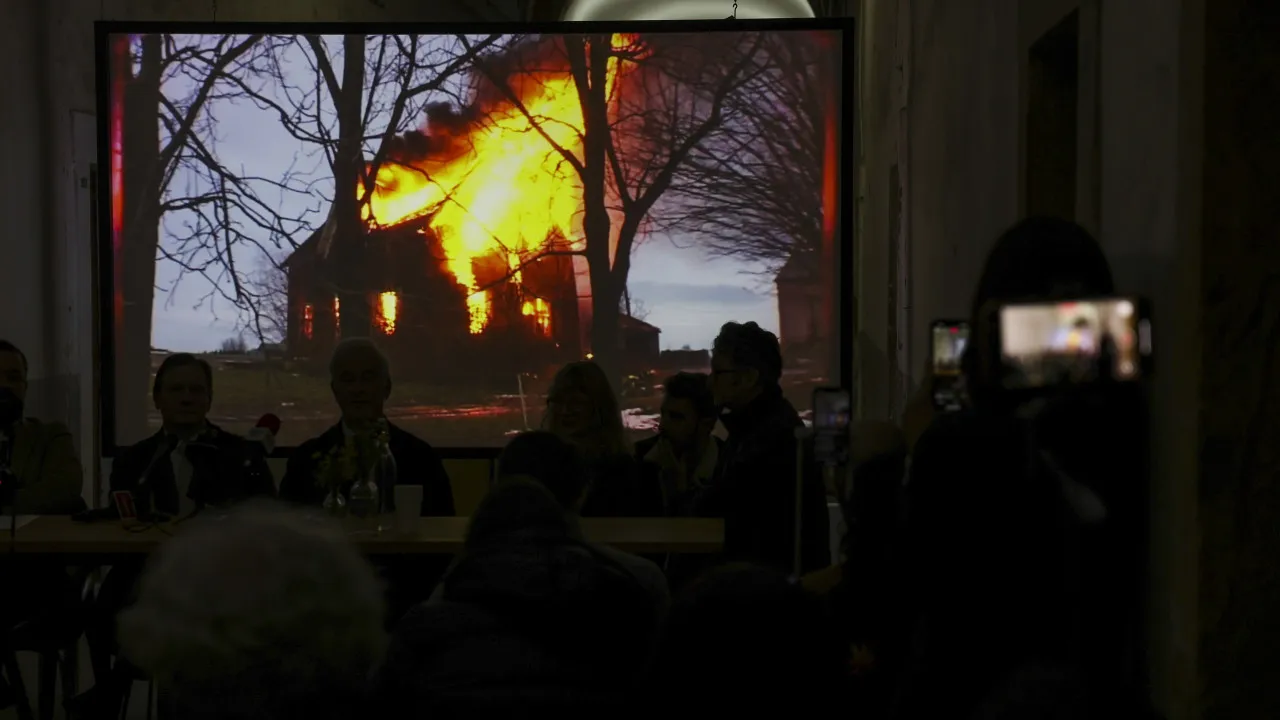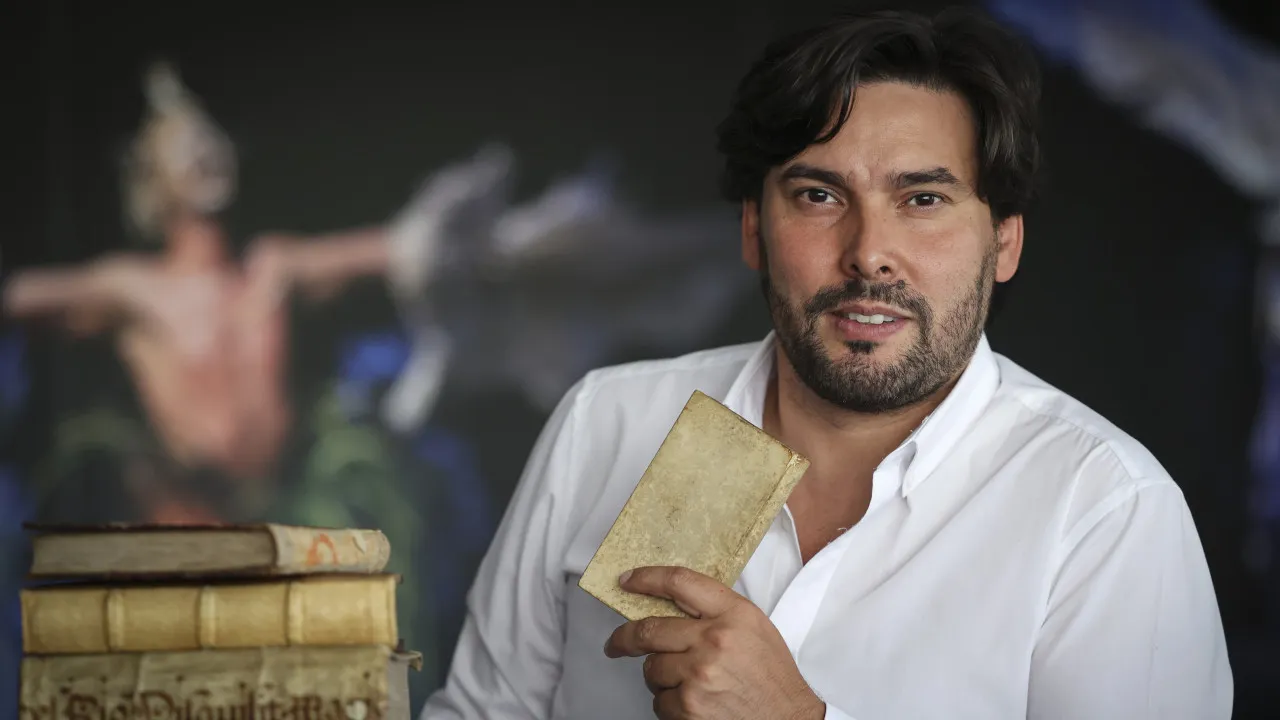The signs of Portuguese colonization perpetuate themselves in the present as open wounds, all the more so as they remain crystallized in a romanticized version, and there is an increasing urgency to understand that it was a project of oppression of many peoples.
The writers Djaimilia Pereira de Almeida and Gisela Casimiro, the artists Ângela Ferreira and Francisco Vidal, the curator and researcher Nuno Crespo, like other creators heard by the Lusa agency, agree on the need to bring the history of the oppressed into the mainstream, to show that Portuguese colonialism was as violent as any other, to repair the damage of centuries since the school books, “to reverse suffering, even if it requires suffering.”
“We’re not going to evolve if we keep putting on the table that it was different with us than it was with other colonialisms,” assures writer and rapper Telma Tvon, author of “Um preto muito português” (A very Portuguese black man), who sees the arts and culture as a chance to “put her finger on the wound” and talk about what she doesn’t dare to talk about.
The essayist Eduardo Lourenço pointed to “Colonialism as our unthought” in the volume of essays written over decades, since the years of the dictatorship, in which he “criticized colonialist mythology” and also addressed the “living legacies” of that past.
Portugal reveals itself “in all its complexity” through colonialism, wrote the essayist in the preface to the first edition of the work, published ten years ago and now “revised and expanded”. Here he tackles “the supreme sin of racism”, confronts the colonial reality with its mythology, explores its contradictions and exposes “this astonishing silence” of a country that, “for most of its history, built itself from the outside, avoiding assuming […] what it was on the inside.”
Visual artists such as Ângela Ferreira, Francisco Vidal and Zia Soares have addressed the violence of this silence in their works, in installations such as “Amnesia” (1997), “A tendency to forget” (2015) and “Fanun ruin” (2022).
Ângela Ferreira, born in Mozambique and living in Portugal since the 1990s, believes that Portugal will only succeed in “decolonizing minds, culture and society” when it manages to “overcome the difficulties” it has had in reflecting on its colonial past, including the story of the Discoveries.
“The crux of the problem is that we haven’t worked on decolonizing our minds and our society,” he told Lusa news agency, referring to a topic that has become increasingly topical in recent years, namely through the return of works of art and artefacts from colonized nations by countries such as France, the United Kingdom and Belgium.
In the same vein, Lisbon-born artist and performer Francisco Vidal, son of an Angolan father and Cape Verdean mother, said he was convinced that the marks of Portugal’s colonial past “are still alive” in ideas, emotions and actions, and argued that “decolonizing contemporary Portuguese thought” remains important.
“We have to do this 50 years on, because there are still marks alive and kicking,” said the artist, who was born in 1978, after the Carnation Revolution, giving the example of the murder of actor Bruno Candé, in 2021 in broad daylight, by an ex-colonial war fighter, who was accused and convicted of a racial hate crime.
Angolan artist Zia Soares created the ‘performance’ “Fanun ruin”, presented in 2022 in Lisbon, which took as its starting point a collection of 35 Timorese skulls from the Anthropology Department of the University of Coimbra.
“Fanun ruin” (“Chamar ossos”, translated from Tetum into Portuguese) was intended, according to the artist, to extend the reflection on the colonial past and its impact on the present, around issues of memory, identity and mourning.
The creator, who works in Portugal, Guinea-Bissau and São Tomé and Príncipe, bluntly posed a series of questions on stage: “What did the faces of the butchered people look like? Where are the remains of the bodies? When will the usurped bones return? Who is waiting for them? Who still remembers? Who wants to forget?”
The Angolan-born writer Djaimilia Pereira de Almeida, representative of a literature on race and identity, of which the novels “Esse cabelo” and “Luanda, Lisboa, Paraíso” stand out, also affirms the evidence that the signs of colonization are perpetuated in the present, and in such a way that she prefers to call them “open wounds”, seeing her work as that of “rewriting history, to the scarce extent” that she can.
“It would be nice if what we write in books could change the course of things, but I still feel confident that part of what needs to be done is a collective effort to rewrite things, not only in an artistic sense but also in a civic sense,” he says.
Regarding the idea that Portuguese colonialism was milder than the others, the writer rejects it completely, saying that “there is no colonialism without violence” and that it is just “a myth that some people insist on believing.”
The writer, activist and artist Gisela Casimiro, who was born in Guinea-Bissau, is of a similar opinion. For her, the subject “is not open to discussion” and, if there were a hierarchy of colonialism, “Portugal would be first or at the top”, a fact that has been amply documented.
“Unfortunately, there is still a crystallized idea, too much misinformation and romanticization of colonialism. People reject this colonial legacy or find justification for what they don’t have,” argues the author of “Estendais”, considering that the “fantasy” and “colonial imaginary” are based on “one’s own superiority and the subjugation and infantilization of the other”, which is not real, but “something that people have learned in history books, which to this day have not been updated with the truth.”
Neither do mentalities. Telma Tvon says: “When I go to Angola, I feel that the Portuguese have a very colonizing mentality. They have an attitude of ‘I’ve come to show you how it’s done’, ‘I’m in charge of this’. We Portuguese are the ones who are going to teach you how to live and be in your own land.”
“I also see it here in Portugal, on a daily basis,” says the rapper, who has a degree in African Studies. “I live here, I can say if I see something wrong, the first thing they tell me is that I’m not from here. [But] I’m here because they paved the way. They’re so happy about the Discoveries – in quotes – that glory, but they forget that Diogo Cão and all those people paved the way for me to be here.”
Researcher Nuno Crespo, director of the School of Arts at the Catholic University of Porto (UCP), argues that, 50 years after April 25, “there is still a huge amount of work to be done, not only in dealing with the process of colonization and decolonization, but also in integrating other communities into our own community today.”
Nuno Crespo, who was speaking to Lusa at the opening of the cycle “Não foi Cabral: revisendo silêncios e omissões” (It wasn’t Cabral: reviewing silences and omissions), which concluded this week, said: “We have very little awareness of the violent way in which the Portuguese colonial project was developed.”








